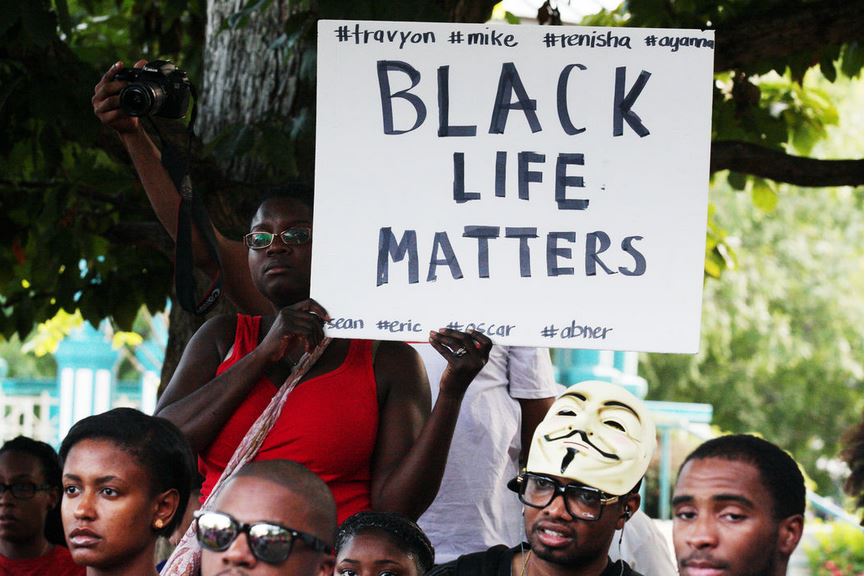Melissa Harris-Perry perfect narration of the disrespect of the humanity of black men
Melissa Harris-Perry provides a representative list of unarmed black men gunned down by white police officers. She then puts the narrative in the context of the outcome of a long ago not forgotten Supreme Court case. The words are searing. Her delivery makes it that more poignant.
‘No rights which the white man was bound to respect’
by Melissa Harris-PerryIn the past decade alone:
January 24, 2004. Timothy Stansbury. Brooklyn, New York. Unarmed.
November 25, 2006.Sean Bell. Queens, New York. Unarmed.
January 1, 2009. Oscar Grant. Oakland, California. Unarmed.
January 29, 2010. Aaron Campbell. Portland, Oregon. Unarmed.
July 18, 2011. Alonzo Ashley. Denver, Colorado. Unarmed.
March 7, 2012. Wendell Allen. New Orleans, Louisiana. Unarmed.
September 14, 2013. Jonathan Ferrell. Charlotte, North Carolina. Unarmed.
July 17, 2014. Eric Garner, Staten Island, New York. Unarmed.
August 9, 2014. Michael Brown. Ferguson, Missouri. Unarmed.
In the past decade alone, these men and hundreds of others have lost their lives to police. Local police report to the FBI killing at least 400 people a year.
From 2006 to 2012, a white police officer killed a black person at least twice a week in this country. Which brings us back to Ferguson, Missouri, where according to a report in The Daily Beast, in 2009 police officers charged a man for property damage because he bled on their uniforms while they arrested him–and allegedly beat him bloody.
Ferguson, Missouri, where it took six days to release the name of the officer who shot an unarmed teenager to death.
Ferguson, Missouri, where police released images of someone who might be Michael Brown involved in a store robbery–and then hours later, said the robbery had nothing to do with why Michael Brown was stopped by the police officer who killed him.
Ferguson is just outside St. Louis, Missouri–the place where, as historian Blair Kelley reminded us this week in The Root, Dred Scott sued for his freedom, on the grounds that he and his wife had for years lived in a free state. His case eventually went to the Supreme Court. In 1857, Chief Justice Roger Taney declared that Scott had no right to sue because as a black man he was never intended to be an American. Speaking of the clause in the Declaration of Independence that “all men are created equal,” Taney wrote:
“It is too clear for dispute, that the enslaved African race were not intended to be included, and formed no part of the people who framed and adopted this declaration.”
Taney went on to say that black men “had no rights which the white man was bound to respect.”

